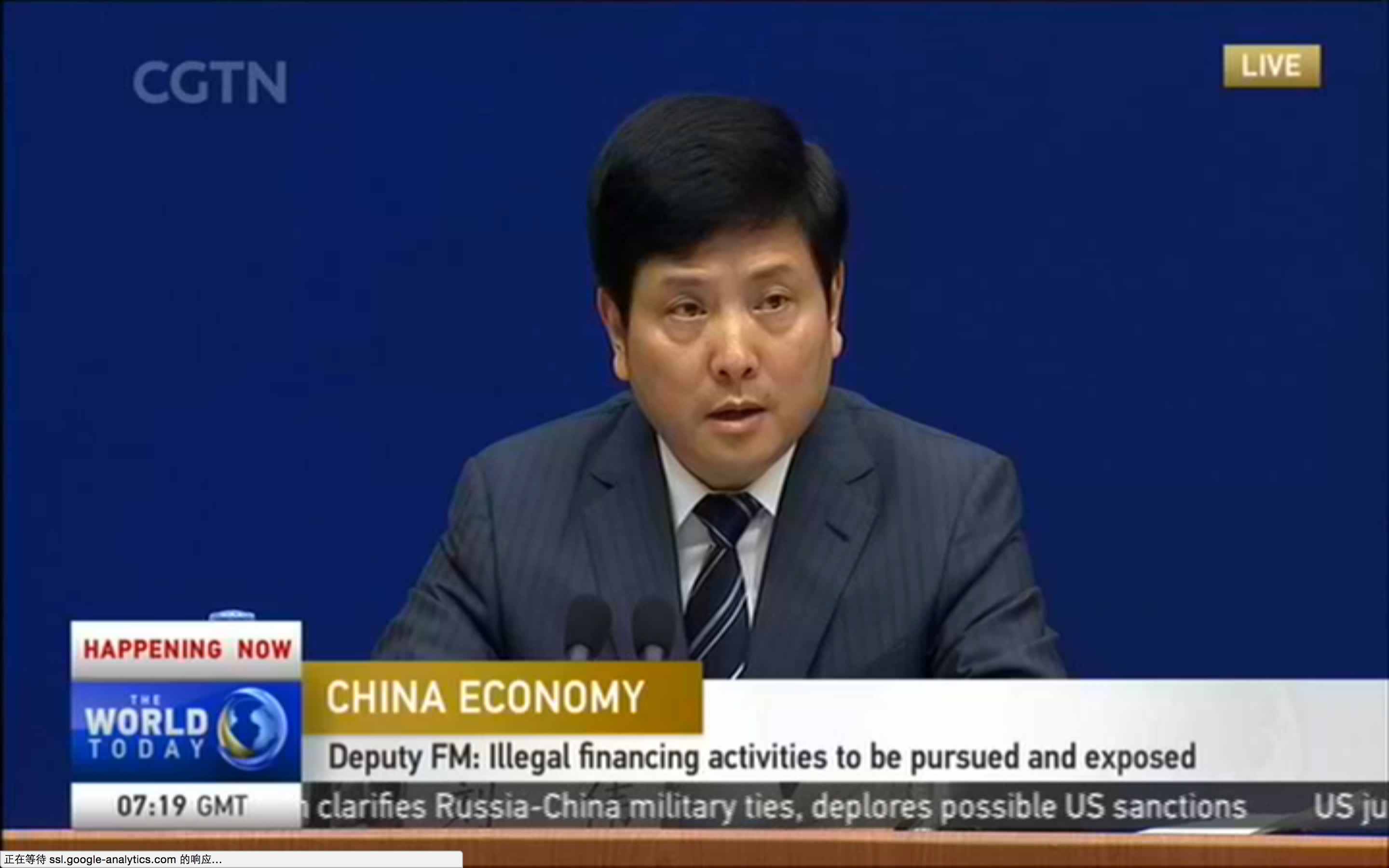China has continued to lower taxation levied on enterprises, alleviate poverty and encourage entrepreneurship in the first half of this year, according to a news briefing on China's fiscal and monetary policies held by China's State Council Information Office on Friday afternoon.
China's Deputy Finance Minister, Liu Wei, said that China continues to carry out positive fiscal policies. First, China has continued to lower tax on enterprises, in ways such as replacing business tax with value-added tax (VAT), simplifying the VAT structure, and relaxing tax incentives for venture capital investment. It is expected that a total of 1 trillion yuan (148 billion US dollars) in tax burdens will be relieved this year.

Liu Wei, China's Deputy Finance Minister, delivers a speech at a China's State Council Information Office news briefing, July 28, 2017. /CGTN Photo
Second, the government has increased its efforts in poverty alleviation. For example, the government is now providing "two exemptions and one subsidy" – an exemption of expenses on textbooks, an exemption of miscellaneous fees, and a subsidy for living expenses for boarding students – for both urban and rural students. The government is also carrying out policies to facilitate employment and entrepreneurship.
In addition, the central government has strictly implemented budget management and enhanced its regulation of financial activities by local governments.
With stronger tax cuts, general public budget revenues reached 9.4 billion yuan in the first half of the year, with a 9.8 percent year-on-year growth. "It reflects that the Chinese economy is developing in a healthy and stable manner," Liu said.
Taxation represents 92.9 percent of the fiscal growth in China's first and second quarters. Taxation of some middle and high-end manufacturing sectors witnessed faster growth due to the continuous optimization of the industrial structure. Consumption demand for sectors like culture, sport and information technology, also stimulated their taxation growth. China's less developed central and western regions have also witnessed faster growth in tax revenues than the eastern regions.
The general public budget expenditures for the first half of this year was over 10.3 trillion yuan, accounting for 53.1 percent of the budget set at the beginning of the year. Major areas including education, science and technology, social security and employment, healthcare and family planning, energy saving and environmental protection, have seen higher input from the government.







